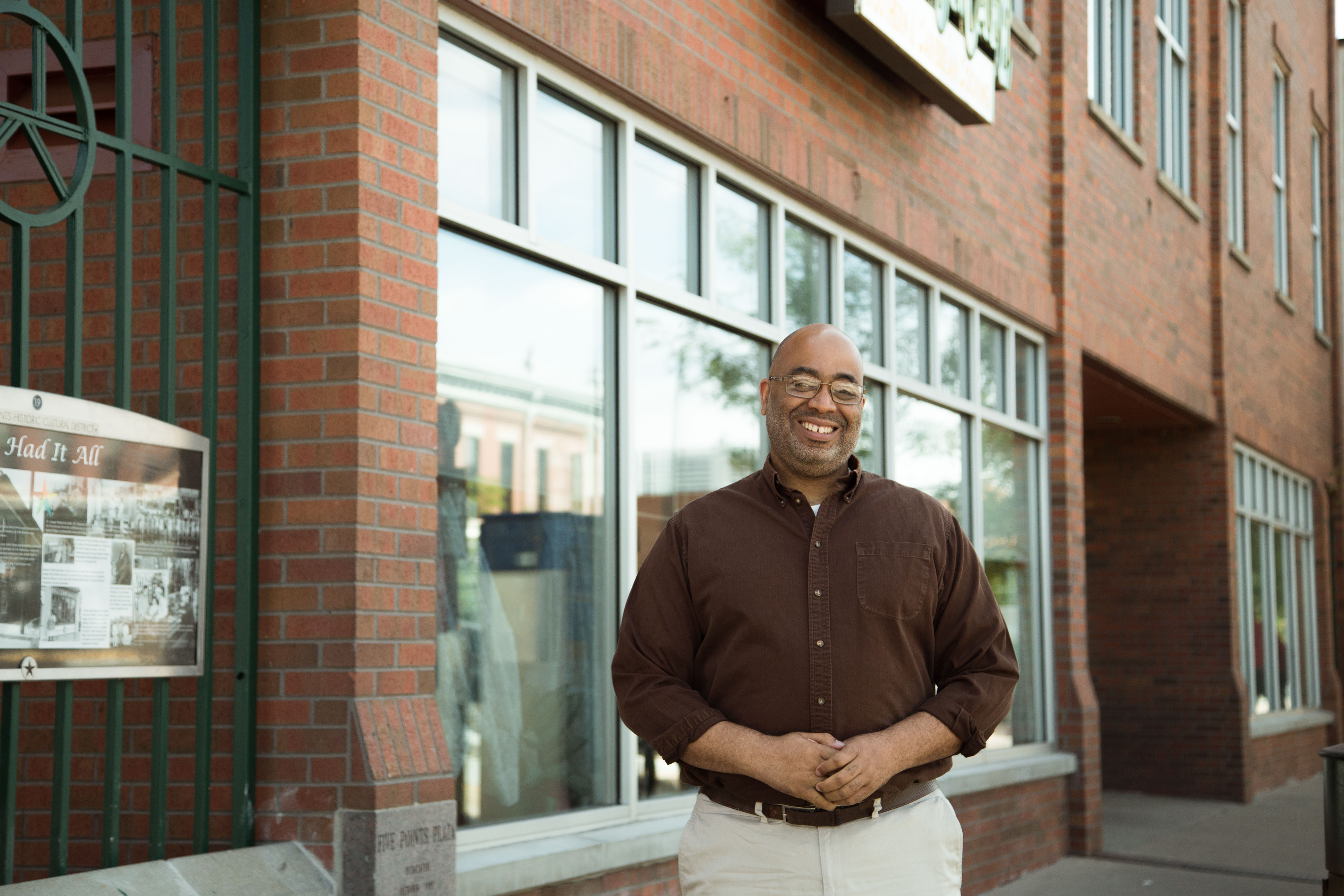Adrian Miller has been in high demand. The James Beard Award-winning food historian, former employee of the Clinton White House and Denver native has been busy being tapped for insight on the current sociopolitical landscape by outlets including the Huffington Post and the BBC, while still putting the finishing touches on his upcoming book on African American barbecue Black Smoke.
The text — set to be released in Spring 2021 through the University of North Carolina Press — will continue the scholarly investigation into the importance of Black food in American society he’s meticulously chronicled in his first two books, Soul Food: The Surprising Story of an American Cuisine, One Plate at a Time and The President’s Kitchen Cabinet: The Story of the African Americans Who Have Fed Our First Families, From the Washingtons to the Obamas. His deep knowledge of the topic, on both a national and local scale — and a belief in the unifying power of food — has propelled him into a leadership role that he has been using to discuss widespread injustice and encourage honest and open conversation.
“We’ve had some next-level restaurants here,” said Miller. Dating back to the dawn of Colorado statehood, Black chefs have been producing top-tier cuisine. Two of Frederick Douglass’ sons were known to have run a restaurant and saloon on California street, with businessman Barney Ford — who still boasts a stained-glass portrait in the House Chamber of the Colorado State Capitol — having opened The Inter-Ocean Hotel in 1873. In the 1930s – 1950s, Five Points continued as a hotbed of exceptional Black-owned restaurants with spots like Benny Hooper’s and The Rossonian acting both as cultural landmarks and food destinations. Otha Rice — who was credited with bringing Juneteenth to Denver in 1953 — continued the legacy with his iconic Rice’s Tap Room and Oven. “Now the Black food story is global and it’s in Aurora,” said Miller of the multitude of international restaurants from across the African diaspora that have taken root out east.
Despite a long history of culinary relevance, Black chefs have been deeply underrepresented in the city’s food narrative. “Traditionally, restaurant criticism has not flocked to African Americans,” said Miller. “The people who decide what stories get told are not diverse or don’t value diversity,” he continued, noting that media outlets have been not as much wilfully problematic, more just lazy or clueless. “As we strive for racial equity, it’s gonna be messy.”
Even so, Miller is optimistic. According to Miller, the recent protests over the death of George Floyd have felt different. “A lot more white people have had the light bulb turned on, there’s a larger activist community,” said the historian, noting that while there’s plenty for everyone to discuss, there’s a lot of issues that white people need to work out amongst themselves before a conversation in which listening surpasses talking is possible.
In the meanwhile, Miller suggests patronizing black-owned businesses and paying attention to and writing about Black chefs and restaurateurs. He also notes that PR firms could donate their services to local restaurants who up until this point have been quietly crafting excellent cuisine under the radar. In the coming months, Miller plans to orchestrate a series of Welcome Table Dinners — in which difficult topics could be discussed over a meal by a diverse group who don’t necessarily agree on the topics at hand. While there are plenty of echo chambers reinforcing and amplifying existing opinions, Miller believes that the most constructive conversations happen when people have a safe space to disagree without things turning into a shouting match. The idea that food can be used to facilitate civil discourse is not new but the concept of vastly different people dining together might be more valuable than ever.
Adrian Miller’s books are available here.
All photography by Adrienne Thomas.






Great job Mr. Miller. Let me know if we can assist you!